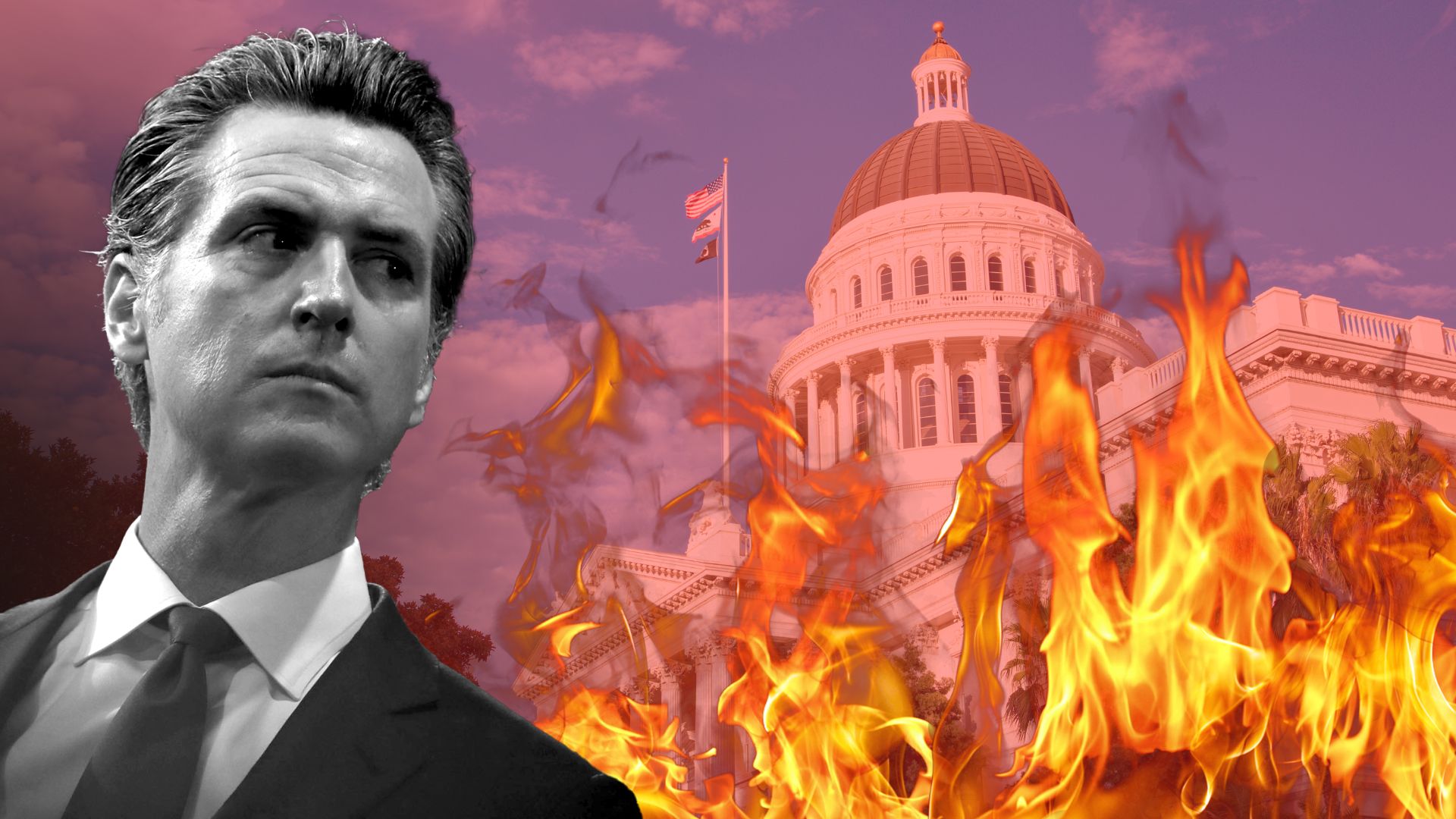
Image Credit:
Canva
For years, California’s liberal politicians and their allies in the media have portrayed state leaders as standing up to powerful business interests to defend the “little guy.” The evidence, however, shows that California’s politicians are subservient to powerful state labor union bosses who keep politicians in line through massive campaign contributions.
“California Democratic politicians and their friends in the liberal media continue to say they fight for the little guy but the truth is they are merely doing the bidding of powerful state labor union bosses,” said DeMaio.
“There’s a shocking pattern of corruption where labor union bosses demand policy changes that benefit them at the expense of the little guy and they payoff politicians in the form of massive campaign contributions,” DeMaio says.
The data backs up DeMaio’s concerns.
The California Globe recently reported that there are roughly a million labor union members being forced to fund over $500 million in campaign contributions to labor unions every two-year election cycle. The Globe’s Ed Ring says the funding scheme “conveys labor’s influence in deciding the outcome of every contest from the top to the bottom of the ticket.”
“Labor unions take money out of employee paychecks without consent and then use those funds to support politicians who many of the employees actually oppose,” DeMaio says.
“The average police officer in California is forced to pay over $1500 a year in union dues and much of that is diverted to fund the campaigns of anti-police politicians,” DeMaio laments.
A recent report by the Transparency Foundation, a nonpartisan nonprofit organization dedicated to government accountability, found that California political parties, top state officials, and major campaigns received Special Interest Money from Corporations, PACs, Unions, and Labor adding up to $50,398,885.39. With clear numbers showing that Democrat campaigns took in roughly $43.4 million (or 619%) more special interest funding than Republican campaigns.
From these results, Carl DeMaio says that the outcome showcases “that one side of the political spectrum is ‘pure’ of special interest funding and the other side is ‘contaminated’ by it.”
“The real truth: big labor bosses who spend millions of dollars to elect their cronies into office — the simple hidden truth is California politics have been completely corrupted by labor unions,” says Carl DeMaio.
And it’s not just campaign contributions that labor union bosses use to wield and buy influence.
A recent study from CalMatter’s data journalist, Jeremia Kimelman, calculated that in 2021-22, CA Labor Federation spent $877,000 on lobbying, while the CA Labor Trades put in nearly $1.2 million in lobbying. Millions more are spent by individual labor unions lobbying officials at the state and local level in California each year.
Labor’s presence and influence extend across various sectors, from education and healthcare to public services and beyond, solidifying their status as a dominant force in Sacramento’s political landscape. And with their significant expenditures and financial involvement in politics, they raise concerns about the potential for imbalance representation, preferential treatment, and a distorted policy agenda that may not entirely reflect the diverse needs and interests of the broader public.
“No Democratic politician dares to cross the labor union bosses even if they have to vote against the wishes of their constituents — they’re afraid to vote against them for fear of the money and endorsements that can wage against them in an election,” explained DeMaio.
DeMaio points to a long list of legislation that has overwhelmingly favored the interests of labor unions over the little guy.
“California politicians have enacted laws to strip employees of secret balloting in union elections, provide union firms certain benefits and advantages in not complying with regulations and mandates imposed on non-union firms, discriminate against non-union firms in contracting, and even mandate that local governments use union-only staffing on projects,” DeMaio notes.
The continued debate over how to provide more affordable housing in California further illustrates DeMaio’s claims. Legislators from both political parties want to cut unnecessary red tape associated with the California Environmental Quality Act (CEQA) but labor unions want to keep CEQA in-tact because they use it as a weapon to block non-union projects from being approved.
“Labor union bosses are using CEQA as an extortion tool - and Democrat politicians are letting them get away with it even if it means struggling Californians will not get affordable housing,” DeMaio says.
DeMaio is leading a fight to rebalance California’s politics by organizing a movement to counter the corrupting influence of organized labor in Sacramento.
“First thing we are doing is encouraging union members to opt-out of paying any union dues,” DeMaio says. DeMaio and Reform California sponsor a Help Desk that facilitates the opt-out process.
DeMaio and Reform California are also leading a campaign to flip key seats in the legislature and at local levels to elect leaders who are willing to stand up to labor union bosses.
“We’re aiming to restore balance, promote accountability, and ensure that the diverse voices and interests of all Californians are adequately represented - not just the interests demanded by powerful union bosses,” DeMaio concludes


-1.jpg)